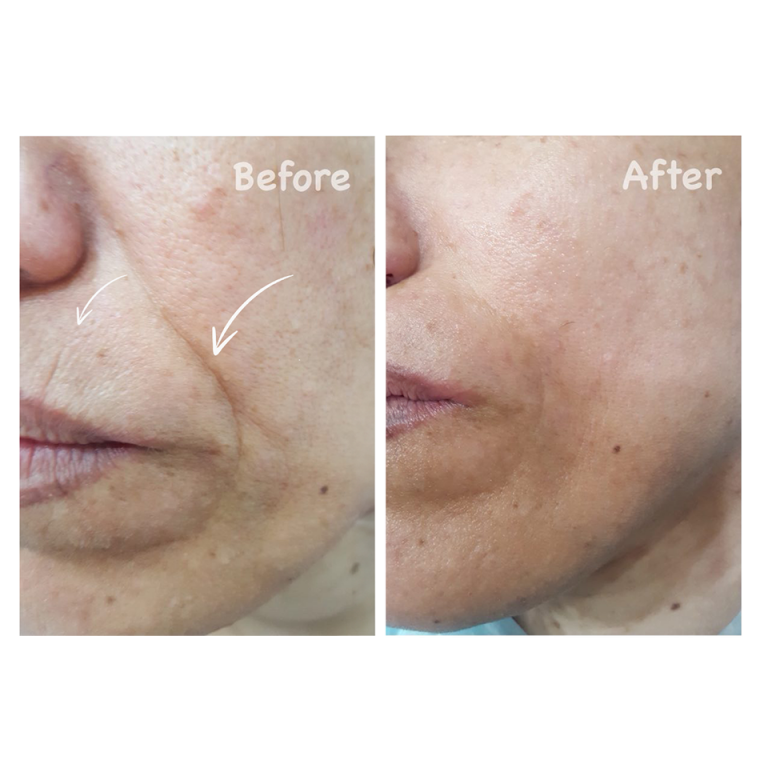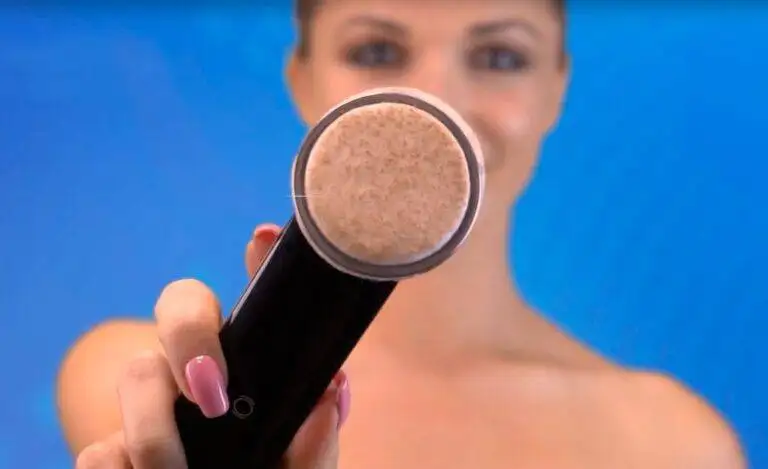The health of your skin says a lot about not only the skin care products you use but also what you eat. Your complexion is one of the first things people notice about you. This is because the condition of your skin reflects not only what you put on your skin but a combination of that and what you eat. Meanwhile, all-natural skincare products work their way deep into your skin; a healthy diet can be seen as an “inside-out” approach to skincare. You are what you eat, they say; and this reflects in many ways, not only on the weight but the overall wellbeing of your skin and the whole body.
Your skin condition is a reflection of what is going on inside your body. Therefore, to have a gorgeous and radiant complexion, the body should be nourished. This fact had long been established as many nutrition experts have shown the positive connection between good nutrition and young-looking skin.
So is there some miraculous food that we should eat to obtain healthy-looking skin? Will I no longer need skincare products if I eat well enough? Let us look at the simple small things we can do in our daily life to have happy, healthy, and good-looking skin.
Healthy, happy skin from inside out
What we eat affects us all in different ways. There are though some foods that can be said in general to be suitable for all of us. One rule of thumb is to go for food that contains a lot of antioxidants. Antioxidants can, for example, be found in abundance in colourful fruits and vegetables. Antioxidants help fight free radical formation in the skin, and there is a clear connection between the levels of antioxidants in the skin and the texture of the skin itself. Higher levels of antioxidants in the skin give a smoother, more textured and soft skin. Meanwhile, lower levels of antioxidants in the skin provides a more rough skin texture.
The consequences of what you eat eventually break through to the outside and affects your physical appearance. The most apparent biological factors are weight and skin. These are the aspects that are noticed first. If you are eating predominantly fast food regularly, you will put on weight. Likewise, your skin will probably reflect the amount of grease and saturated fats you have been consuming. The key to looking well is eating well. Source: Healthfully
Considering that, let’s go searching for the food that has the highest level of antioxidants.

Food for healthy & happy skin
We all have our favourite food and food habits. Sometimes it is more healthy and other times less healthy. But if we look at the ingredients that make up a healthy diet for our skin, I am sure that we will find something that makes both us and our skin happy no matter what our personal preferences are.
Your skin plays an important role not only in how you look but also in how you feel. Healthy skin maintains a proper barrier between your internal organs and your environment, keeping pathogens and other toxins out. While multiple factors, including your genetics, hygiene and other lifestyle habits, contribute to the health of your skin, poor nutrition has a detrimental effect on your skin tissue. Source: Healthy Eating
But let’s first look at today’s situation with the food we have at hand. How it is preserved and the effect this has on our skin.
Preservatives in food
Preservatives, also known as antimicrobial agents, are food additives used to extend the shelf life of food by shielding them against deterioration caused by microorganisms. Although some of these substances are harmless when used in small quantities (e.g., the authorised amounts), the use of others is not without risks to human health.
Among large amounts of side effects, skin rashes and itching, breathing difficulty, sneezing or gastrointestinal upsets can be found. This work is a synoptical review of food additives used as preservatives (antimicrobial agents) authorised in the European Union, considering its characteristics, uses and side effects. Source: Ejfa
Our foods spoil and lose palatability quickly without preservatives. By using preservatives and preservation techniques responsibly, we can reduce food waste. We can increase the shelf life of food, and it helps people with limited access to food. It might, though, have side effects and effects on our well-being and our skin in large quantities.
Which is then the food that we should avoid? Nitrites (commonly labelled as sodium nitrite) is an antimicrobial preservative used widely in processed meat products. Typical foods you can find nitrates in include cured meats, bacon, sausages, and salami. So that lovely yummy salami I love so much is out of the picture… Cereals, potato chips, oils and chewing gum contain BHT, butylated hydroxyanisole, or BHA and preserve oil from going rancid. This list could go on and on, so let’s instead focus on the good things to eat and have healthy, happy skin.
Fish – The source for building collagen and elastin
Fish is an excellent source of protein, and it also contains omega-3 fatty acids. This is the fat that our skin loves. Omega – 3 acids also reduce the inflammation in the skin and keep it happy and healthy. Salmon and Trout are the best sources for Omega- 3 but you can also find Omega -3 in nuts and seeds and other fishes like Mackerel Your skin uses fat to form a waterproof barrier, and this way, essential fatty acids contribute to skin health.
Carbohydrates – The good ones
We all know by now that we should stay away from sugar and white carbohydrates. Replace it with vegetables, fruits, whole grains and beans; our body will get the carbohydrates it needs, and we will be more healthy. Carbohydrates are the main source of energy for the body. They are the sugars, starches, and dietary fibre that occur in plant foods and dairy products. Carbohydrates are mainly found in plant foods. They also occur in dairy products in the form of milk sugar called lactose. Source: Medical News
Colour is the code
Carotenoids, which can be found in colourful vegetables and fruits, can be converted into vitamin A. And vitamin A is needed to help regenerate your cells. If you consider that our body sheds 30.000 – 40.00 skin cells every day, you understand why this is so important for healthy skin.
Many fruits and vegetables are also a good source of Vitamin C, which helps the body produce collagen. And both vitamin C and Vitamin A acts as antioxidants helping the body and the skin fight free radicals.
Go for nuts and seeds
Almonds, walnuts, peanuts ( not salted) and seeds like flax and chia also contains Omega- 3 fats should you not like fish. In addition, some nuts are also rich in selenium which also acts as an antioxidant.
Zinc deficiencies negatively impact your skin. Normal zinc levels help support healthy skin cell turnover, while zinc deficiency can cause abnormal skin pigmentation, lead to skin lesions and put you at risk of dermatitis. A lack also causes hair loss and stunts nail growth. Men need 11 milligrams of zinc daily, while women require 8 milligrams.
A diet low in selenium – an essential mineral involved in protecting your skin from the sun – can also cause problematic skin conditions. Individuals suffering a selenium deficiency face a higher risk of skin cancer. Selenium deficiency can also slow hair growth, lead to hair loss and prevent normal skin cell development. Your diet should include 55 milligrams of selenium daily, according to the Office of Dietary Supplements. The recommended DV for selenium is 55 mcg per day for most adults. Source: Medical News
Water, water, water….to flush it down and out
Water and green tea are excellent to move in nutrients and to move out waste of your body. Our body relies on fluids to help remove waste products. It can not be repeated often enough how important water is for our body. We should ideally drink 3 litres of water per day! Intake of water is especially important during the hot season when water helps not only to hydrate the body but also to give energy and keep us balanced and healthy. Both on the inside and outside.
How what we eat affects the skin
Have you noticed that your skin might react with pimples to some of the things that you eat? That you suddenly get spots? Your diet can cause this mild inflammation. Even though pimples and acne are more common in adolescents due to hormonal changes, adults can suffer from breakouts, too.
If you are on a diet with a high load of refined carbohydrates, this can cause mild inflammation, and you will see the result in acne and pimples.
Proteins, collagen and elastin are mainly in charge of the elasticity of the skin. And they lie just under the skin’s surface, which makes them more vulnerable to damages caused by the sun, for example, and creating fine lines and wrinkles.
Consumption of foods high in sugar, salt and fat can exacerbate already irritated skin. On the other hand, eating a healthy diet will boost your immune system, enabling your body to fight infections that sometimes also appear on your skin.
So, the next time you create your menu plan, make sure to include healthy foods packed with these nutrients.
All-natural skincare products for a happy skin
Your daily skincare regimen can never be complete without good skincare products. On the contrary to what many people believe, everyone needs good skincare products for healthy, happy skin. But in the same way, we have preservatives in food. Unfortunately, many skin care products contain preservatives that can harm the skin. When using skin products, be sure that they are all natural. Preservatives in skincare are there to prevent bacteria, yeast, and fungi in the products. However, products that contain primarily artificial chemicals like parabens, sulfates, phthalates and formaldehyde can trigger skin conditions and damage your skin.
An all-natural skincare product does not use these ingredients to preserve the products. They use natural ingredients.
xCential – all-natural vegan serums
All our serums are all-natural and vegan, and free of sulfates, phthalate, and parabens. With super ingredients like Hyaluronic acids, Juice from Aloe Vera leaves Garden Cress and Inula. Without preservatives, these serums are all you need for healthy, happy and naturally beautiful skin.
xCential Booster Serum is a natural booster for your skin. It gives a 24 hour concentrated moisture boost that gives you that fresh and velvety-smooth skin that you always wanted with immediate effect. In addition, it has both low and high molecular bio hyaluronic acids, which is a unique formula that directly affects the skin, giving the skin a visibly fresh and firm look.
xCential deSpot Serum contains a unique combination of the active ingredients sulforaphane and genistein, which fight the free radicals. Furthermore, combining a super-moisturizer with low molecular bio hyaluronic acid and Aloe Vera leaf juice, the serum has a very intensive and long-lasting moisture optimisation of the skin.
xCential H+ Anti-ageing Serum is packed with the best from nature. Hylauronic acids boost and hydrate the skin, juice from Aloe Vera deep skin and, reducing, directly affects, moisturises at the same time it has an anti-inflammatory effect on the skin.
Nature has given us many healing herbs and ingredients that most often have had to take a backseat for the artificial, heavily marketed products. However, with all that is happening globally, it is time to endure the gifts from nature and contribute to a better you and a better world with all-natural products.








